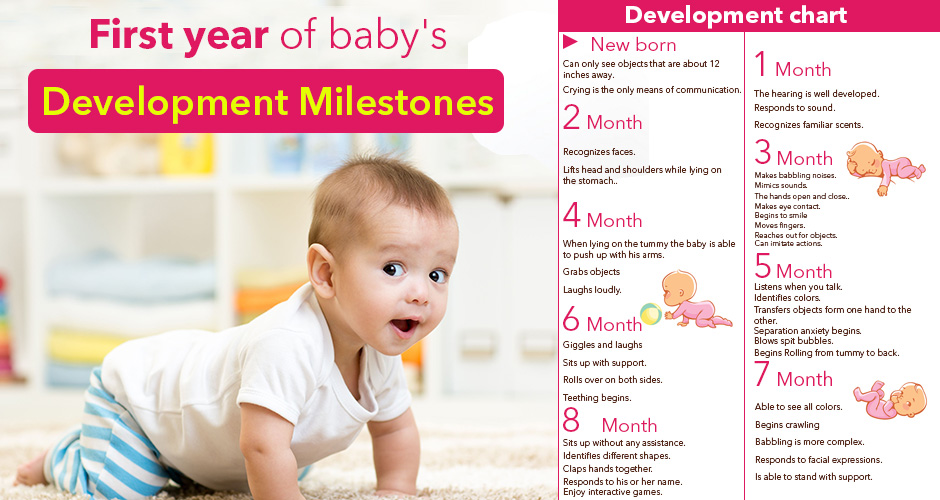 Source: bing.com
Source: bing.comTable of Contents
Physical Development
At one month old, your baby is still very tiny, but they are growing quickly! Most babies gain around 1.5 to 2 pounds in the first month of life. They will also grow a few inches longer during this time. Their head size will also increase, as their brain continues to develop.
At this age, your baby is not able to hold their head up on their own yet. They also have very little control over their movements, and their reflexes are still developing. For example, when you touch the palm of their hand, they will automatically grab onto your finger (this is called the palmar grasp reflex). They may also startle easily when they hear loud noises or feel sudden movements.
Sensory Development
Your baby’s senses are also developing rapidly during the first month of life. They can see things and hear sounds, although their vision and hearing are not fully developed yet. They can see high-contrast patterns, such as black and white stripes, and they are attracted to bright lights. They can also recognize your voice and may turn their head towards you when you speak.
Babies at this age also have a strong sense of smell, and they can distinguish between different scents. They have a preference for sweet smells, such as breast milk or vanilla, over sour or bitter smells.
Sleep Patterns
One-month-old babies sleep a lot, often up to 16 hours a day. However, they usually only sleep for short periods at a time, and will wake up frequently to eat. You can expect your baby to sleep for around 2-4 hours at a time, day or night.
It’s important to create a safe sleep environment for your baby. They should always be put to sleep on their back, on a firm and flat surface, such as a crib or bassinet. You should also avoid putting any loose blankets or toys in the crib, as these can be a suffocation risk.
Feeding
One-month-old babies typically eat every 2-3 hours, or 8-12 times in a 24-hour period. Breastfeeding is the best option for most babies at this age, as it provides all the necessary nutrients and antibodies to keep them healthy. However, formula-fed babies can also grow and develop perfectly well.
It’s important to watch your baby’s feeding cues, as they may vary from day to day. Some babies may want to eat more frequently, while others may take longer breaks between feedings. You should also make sure your baby is latching on correctly and getting enough milk at each feeding.
Conclusion
One month is a very exciting time for both you and your baby! You will start to see their personality develop and their movements become more coordinated. Remember to create a safe and nurturing environment for your little one, and don’t hesitate to reach out to your healthcare provider if you have any concerns about your baby’s development.
Frequently Asked Questions
1. How can I help my one-month-old baby develop?
You can help your baby develop by providing plenty of tummy time and giving them toys and objects to explore. You can also talk to them, sing to them, and read to them to stimulate their brain development.
2. When should my baby start to smile?
Most babies will start to smile around 6-8 weeks of age. However, some babies may smile earlier or later than this, so don’t worry if your baby hasn’t smiled yet!
3. How much should my one-month-old baby be sleeping?
One-month-old babies usually sleep for around 16 hours a day, but this can vary. It’s important to create a safe sleep environment and watch for signs of tiredness or hunger.
4. How often should I be feeding my one-month-old baby?
Most one-month-old babies will eat every 2-3 hours, or 8-12 times in a 24-hour period. It’s important to watch for feeding cues and make sure your baby is latching on correctly and getting enough milk at each feeding.
5. What should I do if I’m worried about my baby’s development?
If you have any concerns about your baby’s development, don’t hesitate to talk to your healthcare provider. They can help you determine if your baby is reaching their developmental milestones and offer support if needed.
